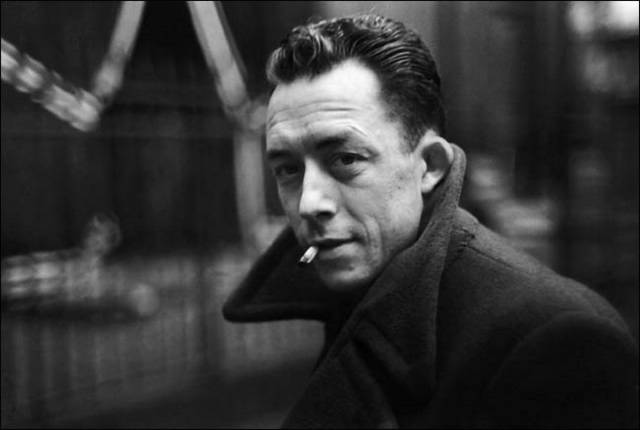
Culture Critic Emily Gulbis discusses the relevance of Camus’ The Plague during these times of crisis, calling it a study of the endurance of man in times of trial
The Plague begins with an epigraph from Daniel Defoe’s Robinson Crusoe: ‘It is as reasonable to represent one kind of imprisonment by another, as it is to represent anything that really exists by that which exists not’. Writing in 1947, what intrigued Camus was the notion of imprisonment. The Plague is an allegory for the Nazi occupation suffered by the French. However, The Plague is more than allegorical: Camus explores how humanity responds when facing an existential threat.
“Camus explores how humanity responds when facing an existential threat
The Plague has experienced resurgences in popularity, often during periods of suffering and uncertainty such as in the aftermath of 9/11 and, of course, during this coronavirus pandemic. This may be because The Plague uses the philosophy of the Absurd: that life is basically meaningless, and so it is futile to search for reason behind suffering within an indifferent universe. Thus the ‘plague’ is an allegory for an evil that comes for no reason, serves no greater purpose and yet alters the hearts of men.
Camus’ concern lies with man, not the hero or the criminal but the common man, whose small acts of kindness to combat the disease are what make the greatest difference.

Set in Oran, Algiers, the plague first emerges with the shocking appearance of rats surfacing in the streets and houses, only to die en masse. As the number of dead rats subsides, the citizens notice signs that plague has now struck among themselves, as many become afflicted with ganglia and pustules, reminiscent of the bubonic plague. Whilst the death rate steadily rises the authorities must impose restrictions on everyday life, starting with closing the city gates. From here on, the effects of shutting down Oran develop through food shortages and an increase in police patrols. As hysteria grips the town and newspapers, the narrator Rieux is left to do the best he can to suppress the epidemic with the help of fellow citizens such as Tarrou, a well-meaning, enigmatic stranger to Oran, and Paneloux, the local priest.
When re-reading The Plague today, certain similarities arise between Camus’ pestilence and the coronavirus pandemic, which reflect how humanity responds to a catastrophe. There is the initial reluctance of authorities to take measures for preventing the disease’s spread. In The Plague the authorities prefer to remain optimistic and keep life undisturbed, an obvious correlation to how many of our politicians were slow to implement restrictions. Another example is how we all are susceptible to the illness, especially obvious in the aftermath of both the Prince of Wales and Boris Johnson contracting the virus. There is a levelling out in society, as Rieux expresses it: ‘But, you know, everybody’s in the same boat.’
“In The Plague the authorities prefer to remain optimistic and keep life undisturbed, an obvious correlation to how many of our politicians were slow to implement restrictions
Overall, Camus is concerned with the human condition during a time of suffering; the central characters of The Plague each represent one of man’s natural responses. Rieux the local doctor, when facing the unrelenting death rate from the plague, continues to do all that he can. His simple persistence to cure his fellow citizens speaks of an inherent faith in mankind, as he strives to do his best even against unfavourable odds.
Another noble character is Tarrou, who refuses to accept the plague and deaths as inevitable, by volunteering to assist the doctor’s work. Tarrou sees the plague as something more than a pestilence; it comes to stand for an inner evil that man must wrestle with. He says that he has been suffering with plague long before coming to Oran. Tarrou reveals to Rieux he was part of a revolutionary cause that killed its opponents in the name of justice; but now to him all killing is evil, thus he chooses to help heal victims of the plague.
“By no longer accepting the suffering plague causes, he seems to forsake God for the sake of helping man
The absurd nature of these deaths that serve no divine purpose creates a crisis of values for the priest Paneloux. He blames the sinfulness of Oran for causing the plague. In short, by sending the pestilence God willed this plague, so man must will it too. The ultimate challenge to Paneloux’s faith manifests with the death of the young boy Jacques Orthon, whose transparent innocence makes his suffering unjustifiable. He then helps Rieux and Tarrou with treating the sick, in contradiction to what he once preached, that the plague must be left to run its course uninhibited. By no longer accepting the suffering plague causes, he seems to forsake God for the sake of helping man.
The journalist Rambert is stuck in Algiers, cut off from his wife in Paris. His focus on his own suffering at this separation makes him at first indifferent to the greater tragedy of the plague. Rambert strives for much of the book to leave Algiers, but when he is finally offered the chance to escape, he chooses not to leave. Although not a citizen of Oran, he feels a solidarity with the suffering of the city, thus he remains to assist Rieux.
The Plague is a study of the endurance of man in times of trial. Undoubtably, this lockdown has caused us to take greater consideration in our actions, and question what is important to us. Although man should not be seen as responsible for the outbreak of the plague, we are accountable for how we respond.
For more on literature to get your teeth into during lockdown, check these out:
Comments